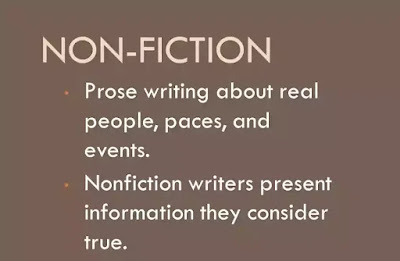Also Read
Poetry dominates the whole of the Elizabethan era in English literature and the development of prose in the time was slower and slighter than that of poetry. The sixteenth century had nothing in its prose to match the excellence of the drama, yet scholars had been preparing the way for the acceptance of English as the standard medium of expression. Roger Ascham in his Toxophilus (1545) and The Schoolmaster (1570) made some contributions in this regard.
The position of Francis Bacon's (1561-1626) position in the development of English prose is marvellous and fascinating to literary output. Bacon wrote his earlier philosophical work in Latin, his capital work Instauratio Magna is written in Latin. Bacon's English prose writings comprise his Essays, in collaborative manner with great diction. He improves upon his contemporaries in the direction of order, discipline, argumentation and precision.
Richard Hooker's (1554-1600) great work is Laws of Ecclesiasticail Polity over which he worked for long years. It is a monument of serious literature and a masterpiece of English prose. Though his style is affected by the classical writers, it is usually homely and pointed; sentences are carefully constructed; the rhythm moves fluently and easily. In point of vocabulary it is markedly Latin. On the whole the style is luminous and harmonious and is free from pedantry or vulgarity which mars the prose of other writers of the age.
Rober Burton (1577-1640) in his fascinating Anatony of Melancholy explored the human mind with the aid of all the learning of the classical world. Other principal prose writers are Hakluyt, Raleigh, Holinshed, Webbe and Puttenham. The prose of the Authorised Version of the Bible (1611) has a great influence on the seventeenth century prose.
Thomas Dekker (1570-1632), who is better known as a dramatist and author of the famous The Shoemaker's Holiday, wrote social studies and pictures of London life, which have a wide range and appeal. His prose sketches are like compliments to the social comedies of the time. His wonderful combination of realism and humour heralds the eighteenth century prose writers like Swift, Addison and Steele. His style is clear, limpid, vigorous and has a curious air of modernity.
The beauties of the Authorised version are those of splendid verse. The language is sincere and simple and brings into the speech an element of pure beauty.
Literary criticisms figure considerably in the prose of Elizabethan period. The most important work of literary criticism is Sidney's Defence of Poetry. In this work Sidney defends poetry against the charges of Stephen Gosson who in his The School of Abuse called poets "The Fathers of lies". Sidney's book is both a defence of poetic art and an apology for it. He exalts poetry to a higher place than history and philosophy. He is a classicist for his respect for the classical rules and in his condemnation of the violation of classical rules in the dramas of the period. Many books were written on English prosody. Gascoigne's Notes of Instruction, Puttenham's The Art of English Poesy and Thomas Campion's Observations on the Art of English Poesy are some important contributions to the Elizabethan critical literature.
Translations of the Elizabethan period made substantial contributions to English prose. The translators worked in various fields. Among the important translations are Pliny's Natural History of the World, Machiavelli's The Prince, John Florio's translation of Montaigne's Essays and Thonas North's translation of Plutarch's Lives.
These translations contributed to the development of Elizabethan literature particularly drama and essay. North's translation provided Shakespeare with materials for Julius Caesar, Antony aid Cleopatra; Florio's translation contributed to the development of essay, particularly of Bacon.
The birth of character writing coincided with that of the essay. The form of writing is indebted to Theopnrastus whose characters were written when Athens was turned into a cultured suburb, Joseph Hall wrote Characters of Virtues and Vices under the influence of Theophrastus. Sir Thomas Overbury gave character writing a really literary flavour. There is wit in his portraits. John Earle wrote the best of all character books-Mocrocosmography (1628) which is a book of genial wit and lively prose.
Thomas Nashe was a creator of a new genre of prose, namely satirical pamphlets. He tried his hand at realistic fiction and wrote The Unfortunate Traveller or he Life of Jack Wilton. Deloney was a weaver, who wrote some ballads, that excited the ridicule of Nashe. He wrote a whole series of prose works to the glory of the crafts of the weavers, shoemakers etc. In the descriptive parts of his books, where he makes the workmen speak, he uses the clearest and gayest prose of his time. He has the gift of good humour, which accounts for some of the brightest and merriest passages in his writings.
